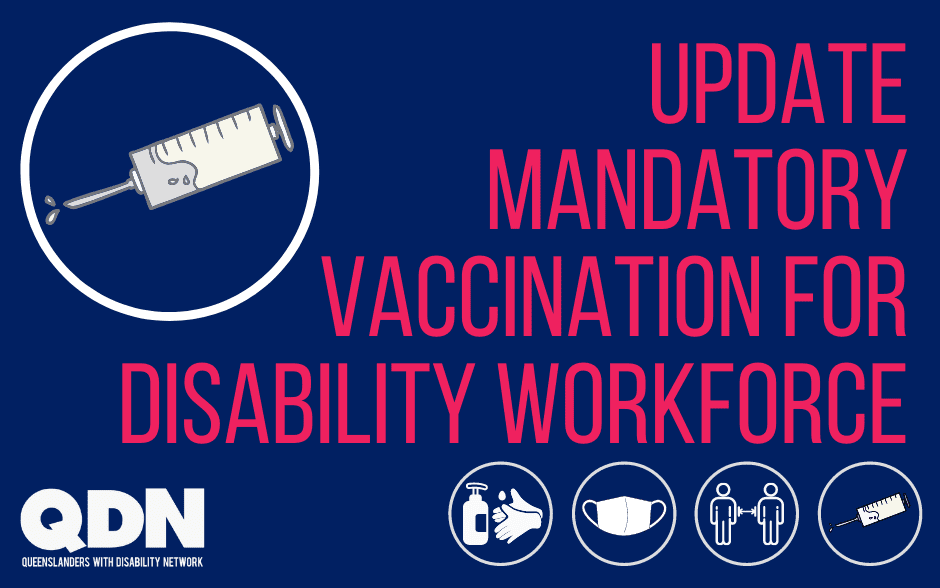Mandatory Vaccination Is Being Introduced for Queensland’s Disability Workforce
The Queensland Government is mandating that all Queensland staff working in disability support services must have their COVID-19 vaccinations. They are also mandating this for all private healthcare staff across the state, including staff working in hospitals and aged care. Minister for Health Yvette D’Ath yesterday announced a new Direction ‘Workers in a Healthcare Setting (COVID-19 Vaccination Requirements)’, to ensure more protection for vulnerable Queenslanders.
What you need to know
- The Health Direction gives the definition of what services and types of support are covered - ‘Disability Support Services’ (see definition below).
- Staff will have to show evidence they have had the vaccination, e.g. ‘My Health Vaccination Record’, the employer must sight the evidence of vaccination and maintain a record that they have seen it.
- If you have staff providing this type of support to you as a person with disability, it is important that they have the correct number of doses of the vaccine by 15 December 2021.This means depending on the staff members date of vaccination, this may be two doses or two doses plus a booster.
- The Direction is very broad and covers health professionals, contractors, independent third-party providers, and employees or volunteers who are providing these types of supports and are employed by other external agencies.
- Once Queensland hits the target of 80 per cent of the population double dosed, unvaccinated people will not be allowed to visit disability accommodation services.
I self-manage my NDIS plan what else do I need to know?
- If you self-manage your NDIS plan you will need to look at the types of disability support services that are covered and your obligations and as an employer. You can find more information here.
What is the definition of disability support services?
- Assistance with daily life tasks in a group or shared living environment.
- Group and centre-based activities that assist people with disability to access community, social and recreational activities in groups involving skilled and experienced support staff.
- Specialist supported employment which assists people with disability who have high support needs to maintain work in a social enterprise for example, sometimes referred to as Australian Disability Enterprises (ADEs).
- Assistance with daily personal activities - assistance with, or supervision of, personal tasks of daily life to develop skills of the participant to live as autonomously as possible.
- Community nursing care to respond to the disability-related health needs of a participant where that care is not the usual responsibility of the health system.
- Therapeutic supports to facilitate functional improvement aimed at adjustment, adaption, and building capacity for community participation.
- Other non-intensive supports including cooks and cleaners.
Where can I find more information?
For more information click here.

